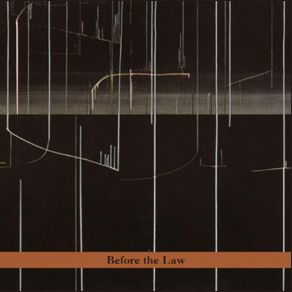Before the Law
Download links and information about Before the Law by Raz Mesinai. This album was released in 2001 and it belongs to Electronica, Avant Garde Jazz, Rock, Avant Garde Metal, Alternative, Classical genres. It contains 33 tracks with total duration of 49:55 minutes.

|
|
|---|---|
| Artist: | Raz Mesinai |
| Release date: | 2001 |
| Genre: | Electronica, Avant Garde Jazz, Rock, Avant Garde Metal, Alternative, Classical |
| Tracks: | 33 |
| Duration: | 49:55 |
| Buy it NOW at: | |
| Buy on iTunes $9.99 | |
| Buy on iTunes $9.99 | |
Tracks
[Edit]| No. | Title | Length |
|---|---|---|
| 1. | Before the Law | 0:37 |
| 2. | In the Penal Colony, Pt. 1 | 1:58 |
| 3. | The Metamorphosis I | 1:22 |
| 4. | The Metamorphosis II | 3:42 |
| 5. | The Metamorphosis III | 1:27 |
| 6. | The Metamorphosis IV | 1:28 |
| 7. | The Metamorphosis V | 3:55 |
| 8. | The Metamorphosis Vl | 0:55 |
| 9. | The Metamorphosis Vll | 1:06 |
| 10. | The Metamorphosis LlX | 0:37 |
| 11. | The Metamorphosis LX | 1:14 |
| 12. | The Metamorphosis X | 1:53 |
| 13. | The Metamorphosis Xl | 1:58 |
| 14. | The Metamorphosis Xll | 0:58 |
| 15. | Three Scenes from the Trial L | 0:52 |
| 16. | Three Scenes from the Trial Ll | 0:34 |
| 17. | Three Scenes from the Trial Lll | 0:56 |
| 18. | The Burrow L | 0:56 |
| 19. | The Burrow Ll | 0:43 |
| 20. | The Burrow Lll | 1:13 |
| 21. | The Burrow LV | 2:36 |
| 22. | The Stoker, Part 1 | 1:12 |
| 23. | In the Penal Colony, Pt. 2 I | 1:22 |
| 24. | In the Penal Colony, Pt. 2 II | 0:51 |
| 25. | The Stoker, Pt. 2 I | 1:59 |
| 26. | The Stoker, Pt. 2 Ll | 1:16 |
| 27. | In the Penal Colony, Pt. 3 | 1:37 |
| 28. | The Castle L | 2:58 |
| 29. | The Castle Ll | 0:23 |
| 30. | The Castle Lll | 1:53 |
| 31. | The Castle LV | 1:22 |
| 32. | The Castle V | 1:12 |
| 33. | Letter to Milena | 2:50 |
Details
[Edit]Using Franz Kafka's writings as an inspirational and thematic backdrop, composer and electronica pioneer Raz Mesinai has created a virtually indescribable wonder of an album. Here, Mesinai, who is a painstaking composer — particularly for strings and percussion — employs Mark Feldman, Jaqueline Leclair, Michael Moser, Ralph Farris, Ann de Villiers, and Erich Schoen-Rene to record his pieces with nuance, subtlety, and grace. Mesinai also plays percussion on many of them, then samples his own work (these very recordings in fact) and superimposes bits and pieces of them over the played sections, creating a deep, haunting, sometimes nightmarish comedy of sonic ideas. But then, if you are doing Kafka, that's what you're supposed to be doing, right? Nonetheless, in musical scenes from The Penal Colony, The Trial, The Castle, and others, Mesinai uncovers several important discoveries in his investigation of Kafka. First, there is his Jewishness, brought out here by the striated harmonics associated with ancient musical styles read through the broken refraction of first Kafka's and then Mesinai's lens. Next, there is the sense of displacement and wandering, a musical restlessness that knows that there are many rooms in a castle, but all of them have more rooms that are locked within those. It's the mazelike centering journey of the Jew in postmodern society that Kafka was trying to capture in his own work that comes across so profoundly here. There is no escape from the sound world created by Mesinai. Once you've been exposed to it, there is literally no turning back — it will haunt you forever in its subtle insistence that nothing is as it seems and that every truth can be stretched into the most hideous lie and back again. This is the place of music in the 21st century, to offer expanded pictures of what can be seen, of what can be perceived to be the truth, simply because that perception is errant. The music is no more accurate, perhaps, but it is a dimension, another look at the very same terrain yet to be encountered or be informed by. This is a truly wonderful work, and one more reason to look to the Tzadik label for the new music that truly matters.